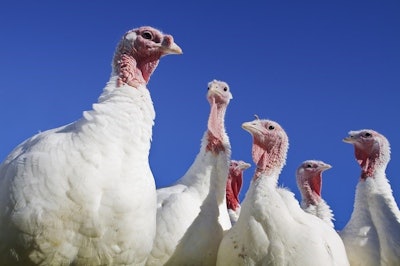
It is well known that Mexico – the cradle of turkeys – is a net importer of turkey meat. Even compared to other countries, whole turkeys are basically consumed only during the Christmas holidays. The rest of the year is through cold meats.
Traditionally, turkey imports used to come from primarily the U.S. and Chile. But this past year there was a new player – Brazil. As grain costs have moved higher all over the world, so has turkey meat. In a country with low wages such as Mexico, buying whole turkeys and turkey cold meats is not a priority, so alternatives were sought.
With the opening up of the Brazilian poultry export market to Mexico, there was no reason for not considering turkey meat. According to the National Poultry Producers Association of Mexico (Unión Nacional de Avicultores – UNA), up to October 2022, in terms of volume, imports of turkey meat decreased by 23.3% (103,000 MT vs. 79,000 MT) but compared to all twelve months of 2017 (the year in the last decade with more turkey imports), imports have decreased by 56.8% (139,000 MT vs. 79,000 MT).
In terms of value, there is a whole different picture because value increased by 17%, 2022 vs. 2021, and 25.5%, 2022 vs. 2017.
Now, let’s compare the three exporters to Mexico. In 2021, exported turkey from the U.S. accounted for 13.2% of the total Mexican poultry imports from that country, whereas in 2022 (up to October) turkey imports decreased to 9.5%. Meanwhile, in 2021, Brazilian turkey exports to Mexico accounted for 0.2%, whereas in 2022 it grew to 8.2% of total Brazilian imports. Chile also increased that share from 10.5% to 15.5%, although less total volume. Please note that these figures do not consider mechanically deboned meat (MDM).
So, to make a long story short, the outlook of Mexican poultry imports is changing, little by little, but it is changing. And Brazil might be winning the game.
What do you think?



















